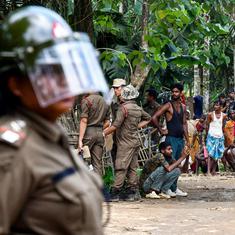Today, India’s MSME sector is made up of millions of enterprises. Not only is this poised as the growth engine of the country’s economy, but it also provides large-scale employment in rural and urban areas. This stance is further strengthened by the government’s various financial inclusion schemes such as the Budget 2019’s additional benefit for GST-registered MSMEs. Pegged at an allocation of INR 350 crores for 2% interest subvention, applicable for fresh as well as incremental loans, this is bound to usher in a monumental change in the sector.
However, the MSME sector still faces a wide credit gap, primarily due to the lack of awareness amongst MSMEs about loan opportunities and credit eligibility. A study commissioned by the International Finance Corporation (IFC) pegs this gap to be a whopping INR 16.66 lakh crore, with more than 80% of MSMEs not receiving any formal financing.

As MSMEs gear up to avail government schemes and capitalise on loan offers, they need to be made aware of their opportunities to access funds within the formal lending landscape. Earlier, banks and non-banking financial companies considered it risky to lend money to MSMEs. Lenders expected small businesses to showcase strong financial structures, diversified businesses and long-term goals. These were difficult for MSMEs to present, especially because they lacked formal accounting systems or even securities to offer as collateral. MSMEs couldn’t demonstrate themselves as being as credit-worthy as large enterprises.

But that tide is quickly changing. Because of a growing need for credit, essential for growth and expansion, MSMEs realise that they need to demonstrate a healthy past credit behaviour in order to get bigger loans from lenders.
In India, the CIBIL Rank & Company Credit Report (CCR) indicates a company’s creditworthiness and helps lenders evaluate an entity more objectively. A high CIBIL Rank might mean better interest rates and faster turnaround time from some lenders.
The CIBIL Rank summarises the Company Credit Report (CCR) — a record of a company’s credit history based on data submitted by lending institutions across India — in one number. It places a business’ financial health on a scale of ten to one, with one representing the highest chances of securing a loan. Among companies that have been sanctioned loans, about 70% had a CIBIL Rank between four and one. Currently, CIBIL Rank is available for companies with current credit exposure between Rs. 10 lakhs and Rs. 50 crores.

CIBIL Rank & CCR has the potential to make formal lending to MSMEs a smoother process for both borrowers and lenders. It is facilitating faster loan approvals and discounted interest rates for MSMEs with a good CIBIL Rank. So, how can MSMEs maintain a healthy CIBIL Rank?
Taking only as much loan as required can help a company steer away from debt traps that can negatively impact credit health. Further, paying back creditors on time and avoiding defaulted or late payments can go a long way in showcasing financial discipline. It is important to keep monitoring the company’s credit health regularly to ensure credit access whenever required.
To know more about CIBIL Rank & CCR, click here.
This is a partnered post.










